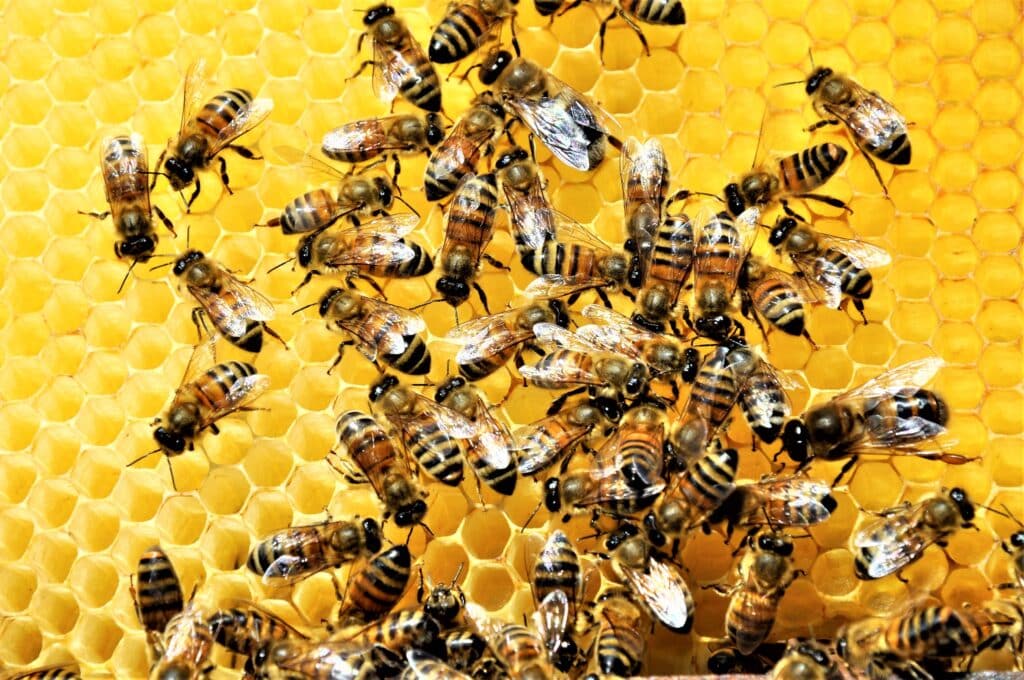
Did you know this about bees? Bees are remarkable creatures that have captivated the human imagination for centuries. Not only do they play a vital role in pollinating plants and producing honey. Their fascinating social structure, communication, and cooperative behavior also offer us invaluable insights into living harmoniously with nature. In this article, we will explore the profound teachings that bees provide us, as shared by Wop-misdawpinagjij-esk (Michelle Webb), of Mi’kmaq and Acadian French Ancestry, Crow Clan. Drawing from her personal experiences and the wisdom of Indigenous Elders, we will uncover the essential lessons that these tiny yet powerful insects impart. We can apply them to our own lives for a more sustainable and interconnected world.
Bees Teach About Unconditional Love
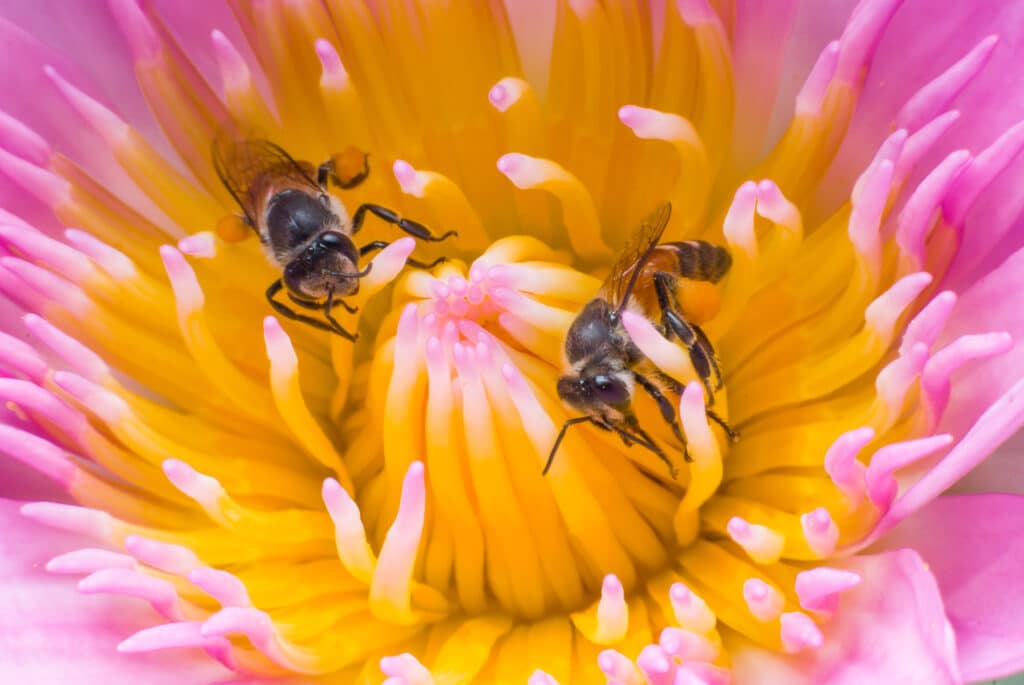
Did you know that bees pollinate plants to produce food for everyone and everything that can make use of plant material as food? They do not discriminate between races or decide who may be more deserving based upon any criteria. They pollinate the plants to make food for all. If there is enough varied vegetation close to home, they will try to make their rounds to visit all the plants in their seasons, following the plant’s life cycles. If there is only one kind of plant within their home territory, you can get special flavours like Clover Honey. In their visitations they drink some plant nectar to feed themselves and take nectar and pollen back to the hive to feed the colony’s young, when they hatch. They therefore teach us that planning ahead and taking care of each other is a good thing.
Did You Know That Bees Teach Us About Balance
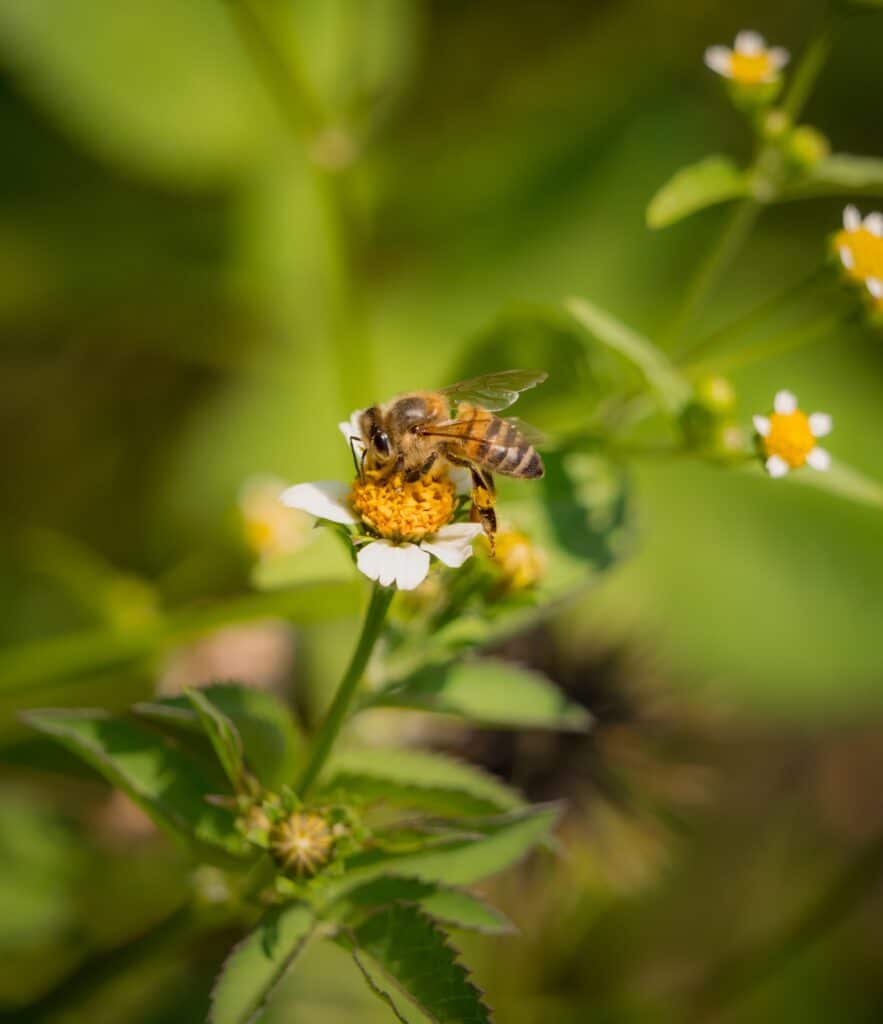
Did you know that bees in the process of going plant to plant, they carry extra pollen between plants that enables these plants to cross pollinate to make healthy vigorous seeds and thus fulfill their destiny. This can seem a bit self serving because it also ensures there will be plants for the bees to collect food from in the next year. But it actually reveals a healthy interdependence and highlights the meaning of the phrase “whatever I do to another, I ultimately do to myself.” In that Circle of Life we are asked to “love one another”, to love the Oneness of the Creator, (all things being made by the same Creator, yet each given an important yet separate purpose) and to love our other unconditionally and interdependently.
Did You Know That Bees Teach Us About Respect
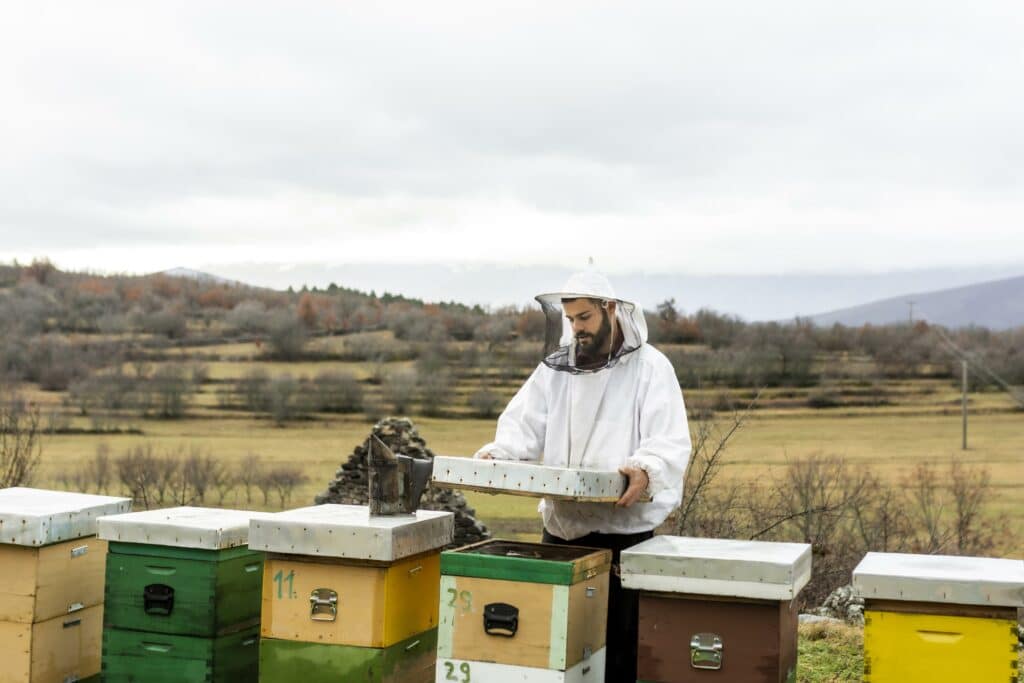
If you interfere with a bee’s important work and especially if you hurt them, you are mostly likely to get stung. The pain lasts long enough for you to have plenty of time to think about what happened and why. At best, you will understand the sacredness and importance of fulfilling one’s purpose, and at the least you will think twice about messing with a bee. The black and yellow stripes will help to warn you off and remind you of the lesson the next time you see one. Bees, unlike wasps, can only sting once and then they die. This is a reminder that there are consequences of not living in harmony with our other, even when lessons need to be learned, there is a cost to all parties.
Bees Teach Us About Commitment And Work Ethic
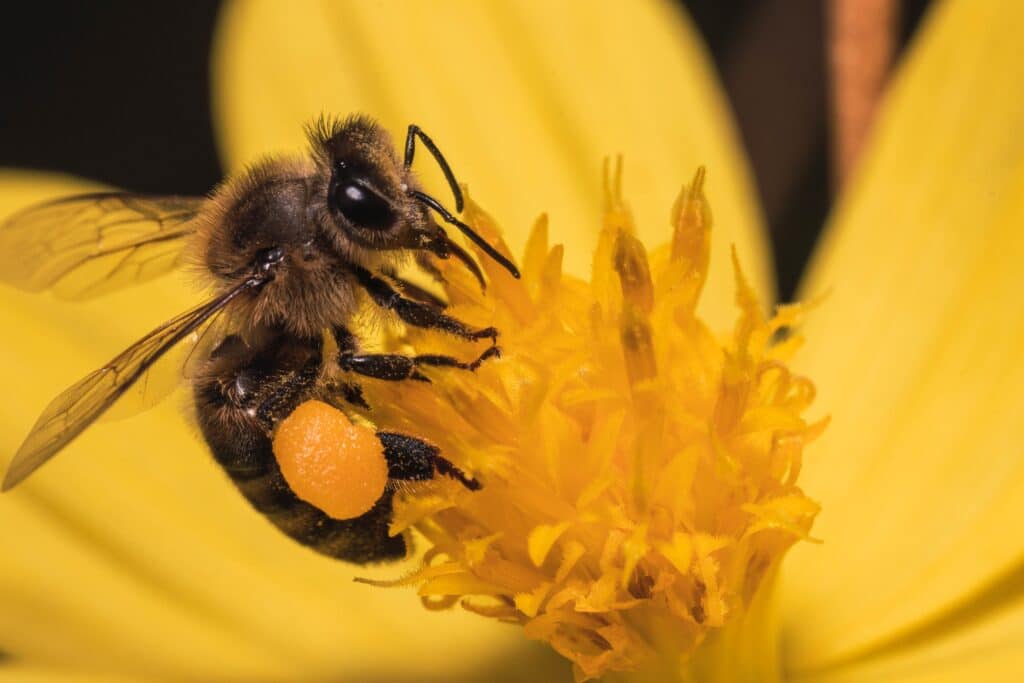
Did you know that bees take joy in fulfilling their purpose, they sing and dance and “stop to smell the flowers” so to speak. I like to think of the buzzing song as prayers of thanksgiving and cheers of encouragement for the plants. They, of course, must like to comment on a good meal as well. A lot of times we will say it unconsciously under our breathe, without realizing it ! Many of us like to say “hmm, hmm, hmm” when something tastes good. Are we imitating bees ?
Bees will also hum and dance to share their joy in finding an abundance of tasty nectar and pollen, attracting other bees to come share in the enjoyment and also in the labour of carrying that back to the hive. This reminds us of the importance of sharing both the good and the not so good things in life. By sharing, we can multiple our joy, as well as divide our burdens. And we help each other fulfill our own purposes in life on this planet.
Our reward for living interdependently and cooperatively is that bees will allow themselves to be soothed by smoke and a gentle handler, and allow some of their honey to be taken for our use. It is good for us nutritionally, and medicinally, it can help our immune system. Eating locally produced honey can also help us to reduce our allergies to locally growing plants.
Beekeepers have learned to build artificial hives that are easier to remove honey from, and less disruptive for the bees in their work to raise their young and refill the honeycomb again with honey, so the colony can survive the winter. It takes a lot of work to build a hive and comb and collect the pollen and nectar to make the honey. By not taking too much at a time, we can ensure that bees can continue to exist and pollinate and make more honey to share.
At this time in history, the world is out of balance. We humans are not paying attention to the rhythms of the natural world. We are not recognizing how they are being disrupted. The rhythms we rely on to survive. We were created last because everything else in creation needed to be in place, living in balance interdependently to create a suitable environment for us to live in.
The rest of creation follows their purposes, they are hard-wired to do what they are supposed to do. We are the weak link, we have free will and choice. Without us, the rest of creation would and could carry on quite nicely. Bees are showing us there is an imbalance. It is up to us to figure out where it is and change our ways, make different choices that will restore the balance. We need to understand that we need to live respectfully and interdependently with creation. We can no longer take more than we give. Bees are having a very hard time surviving right now due to disruption of habitat, pesticides, sicknesses and climate change. Numbers are plummeting. We do not fully know and understand them or their needs and therefore many more factors can be at play in the interdependent “Web of Life”, than we presently realize. We need to educate ourselves, and we need to help them.
It Takes About 100 Visits By a Bee To Produce a Perfectly Round Apple
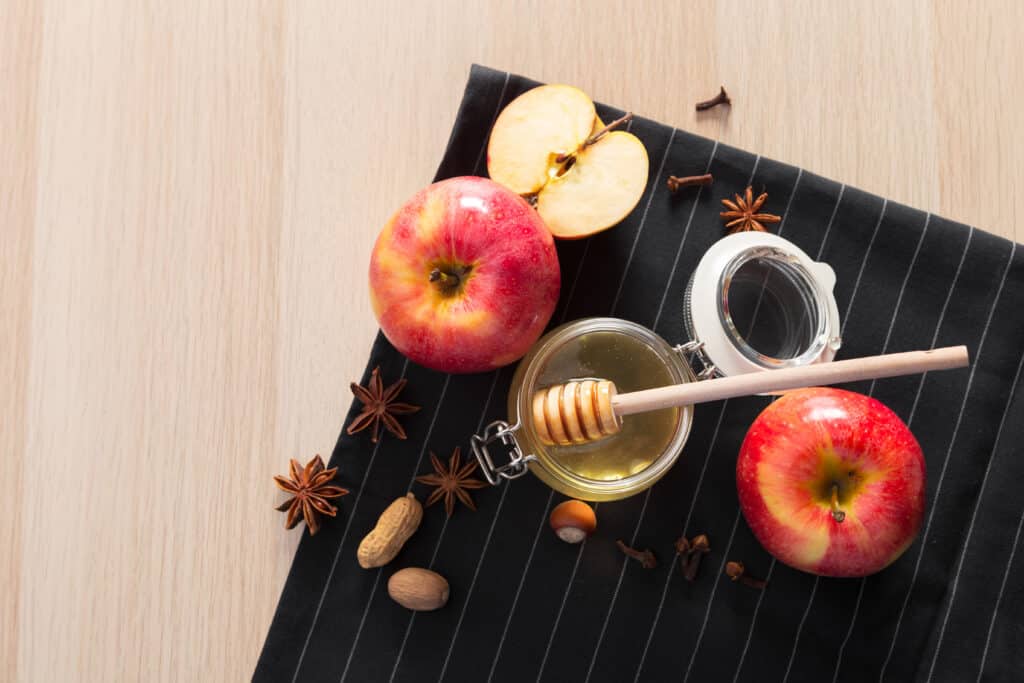
Malformed apples that you see that are shrunken on one side or so, were not pollinated fully to produce a round apple. Did you know that places like orchards and cranberry marshes presently have to hire beekeepers to set up hives in their orchards and marshes in order to try to ensure there are enough bees to pollinate their crops? They get paid by the pound of produce not by the apple, they and us, like the full round ones which weigh more individually and are tasty and not tough.
In conclusion, bees offer us invaluable teachings about unconditional love, balance, respect, and the importance of interdependence in nature. Their current struggle to survive due to habitat loss, pesticides, and climate change is a clear indicator of the imbalance in our world. It is crucial for us to educate ourselves and make conscious choices to restore balance and protect these incredible creatures. As we continue to learn from bees and their remarkable ways of life, we invite you to explore our next blog post, where we will delve deeper into the importance of sustainability and how we can work together to create a harmonious world for all living beings. Let’s take the lessons from the bees and apply them to our own lives, fostering a sustainable future for generations to come.





